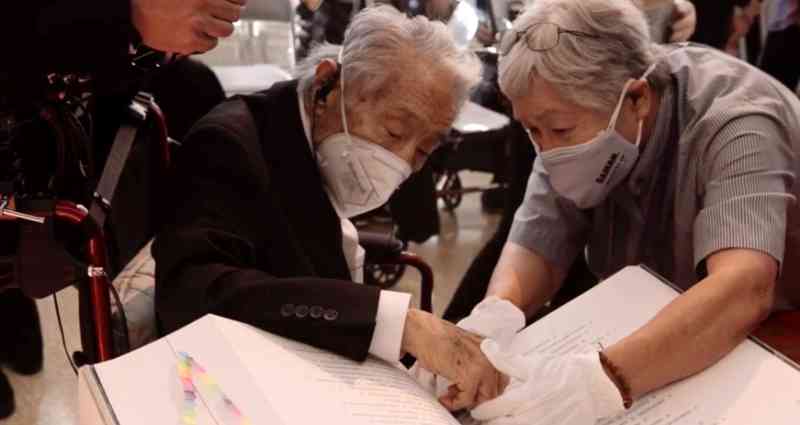Complete list of WWII Japanese internees unveiled in LA weighs 25 pounds


The Japanese American National Museum in Los Angeles held a ceremony to unveil the first-ever complete list of more than 120,000 people of Japanese descent who were held in incarceration camps in the U.S. during World War II.
This year marks the 80th anniversary of former U.S. President Franklin D. Roosevelt’s authorization of Executive Order 9066 in February 1942 following Japan’s attack on Pearl Harbor. As a result of the order, authorities forced Japanese immigrants and Japanese Americans into incarceration camps across the U.S.
Duncan Ryuken Williams, director of the University of Southern California Ito Center for Japanese Religions and Culture, founded the Irei Project and led a team to complete the first official list of Japanese internees. The project began in 2019, with members combing through 1940 census data and examining World War II draft cards.
“One of the most important things is that history is not just numbers,” Williams told Kyodo News. “We gave full Japanese names for every single person, and so that gives a little bit of a sense of the real individuals that were affected by this experience.”
The list, which covers 125,284 internees held in 75 locations managed by the Justice Department and the U.S. military, filled a large book weighing 25 pounds at the Japanese American National Museum in Little Tokyo on Sept. 24.
The book is named the Ireichō, which translates to “record of consoling ancestors” in Japanese. It honors the internees and their family members who went through immeasurable loss under the U.S. government during the war.
The ceremony included a procession of over 150 people from all 75 incarceration sites. The attendees, including survivors, descendants and clergy, paid their respects to the Ireichō.
“The public’s interaction with the Ireichō will be the first step to correct the historical record and ensure that it is accurate for future generations,” Ann Burroughs, the museum’s president and chief executive, reportedly said.
Survivors, descendants and friends placed stamps next to the names of their loved ones in the book to acknowledge and pay tribute to them.
“I was relieved that my name was there,” Kanji Sahara, an 88-year-old former internee at the ceremony, said. “It will never happen again… we don’t repeat history.”
Featured Image via Japanese American National Museum
Share this Article
Share this Article
